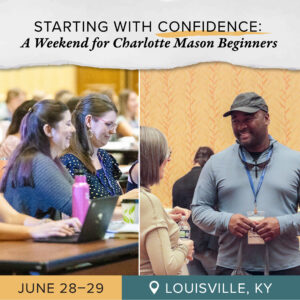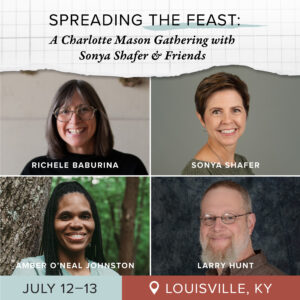The CMP Review — Week of January 15
January 15, 2024
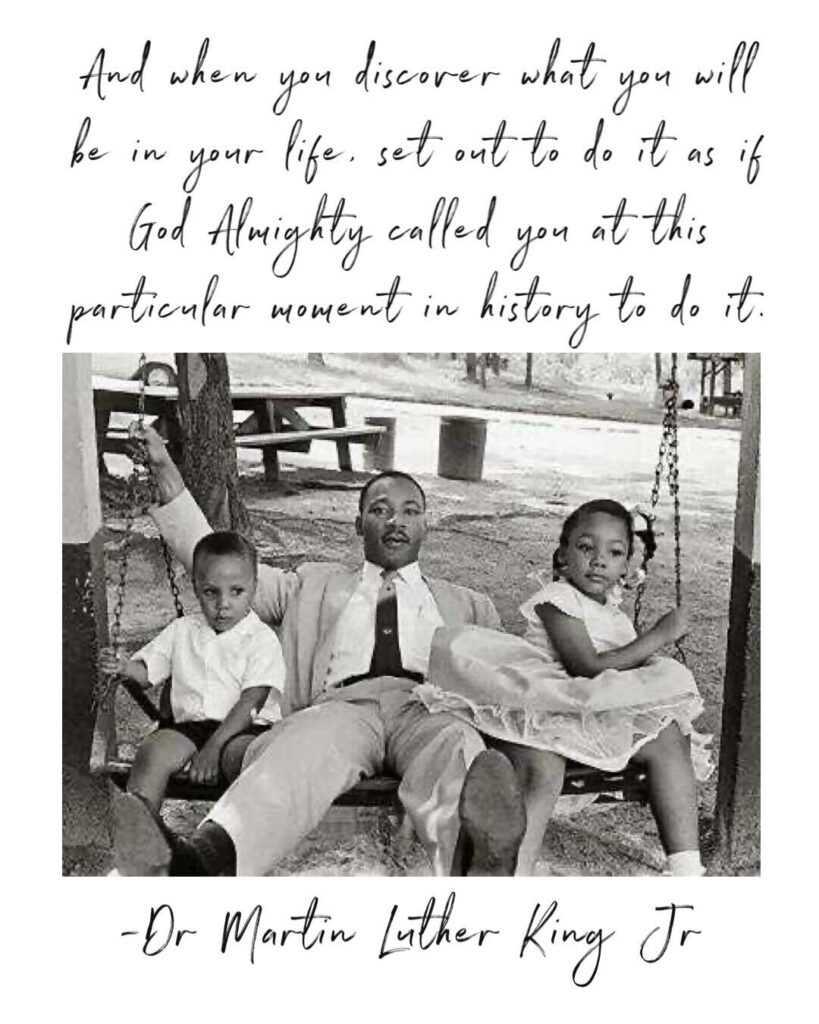
“And when you discover what you’re going to be in life, set out to do it as if God Almighty called you at this particular moment in history to do it… Set out to do a good job, and do that job so well that the living, the dead, or the unborn couldn’t do it any better.
If it falls to your lot to be a street sweeper, sweep streets like Michelangelo painted pictures. Sweep streets like Beethoven composed music. Sweep streets like Leontyne Price sings before the Metropolitan Opera. And sweep streets like Shakespeare wrote poetry. Sweep streets so well that all the hosts of Heaven and Earth will have to pause and say, ‘Here lived a great street sweeper who swept his job well.’
If you can’t be a pine on the top of the hill, be a scrub in the valley. Be the best little scrub on the side of the hill. Be a bush if you can’t be a tree. If you can’t be a highway, just be a trail. If you can’t be a sun, be a star. For it isn’t by size that you win or fail. Be the best of whatever you are.” (MLK)
January 16, 2024
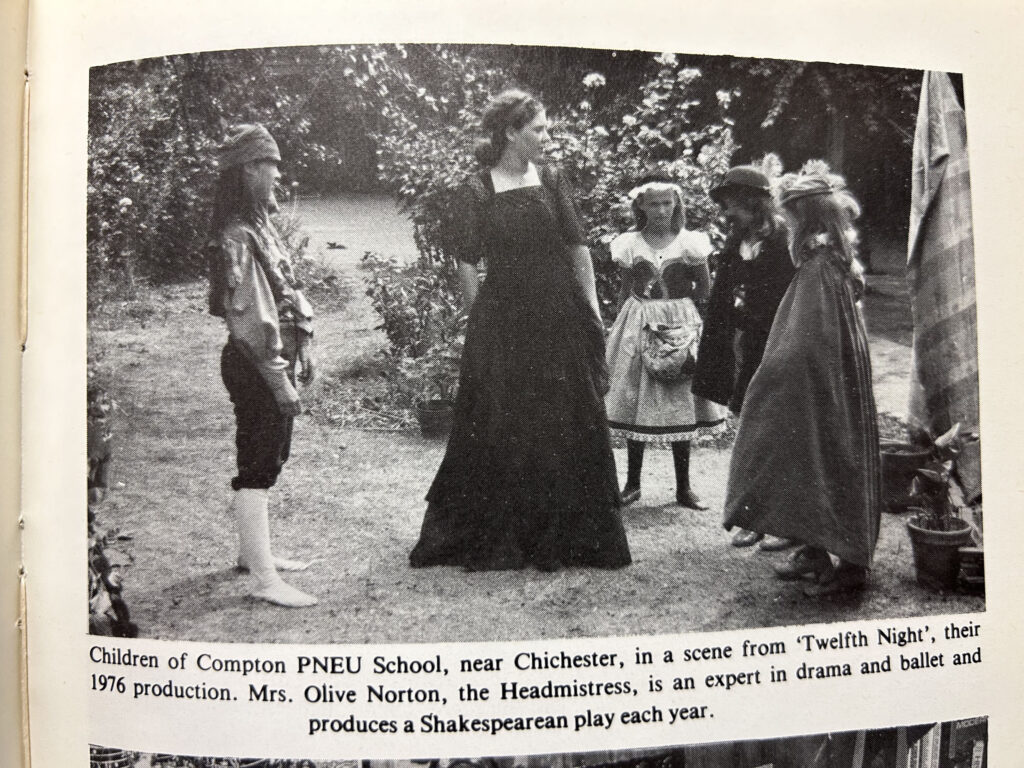
Last week we shared the remarkable story of Olive Norton, the homeschool mother. Her testimony as a mother-teacher was recorded in the 1962 issue of The Parents’ Review, soon after her daughter had left the “home-schoolroom … at the age of sixteen and a half years.” As with many parents today who have graduated their last child from homeschool, Mrs. Norton faced a decision. Was educating the Charlotte Mason way just a temporary phase in her life? Or had the years of teaching her children at home transformed Mrs. Norton into a new person and given her a new calling?
It turns out that for Mrs. Norton, “twelve and a half years” of home education was just the beginning. In the decade that followed, she turned her focus outside the family and became headmistress of the Compton PNEU School, near Chichester in West Sussex.
In 1976, another article by Olive Norton appeared in print, this time in The PNEU Journal, the new name of The Parents’ Review. This article, entitled “In Defence of Shakespeare,” includes a testimony from one of her students on how the study of Shakespeare is carried out in the Compton school. But Norton’s article gives more than simply practical guidelines on how and why to study Shakespeare. It also gives a glimpse into how and why to trust the Charlotte Mason method, even in the third decade of teaching. Read or listen here.
@artmiddlekauff
January 17, 2024
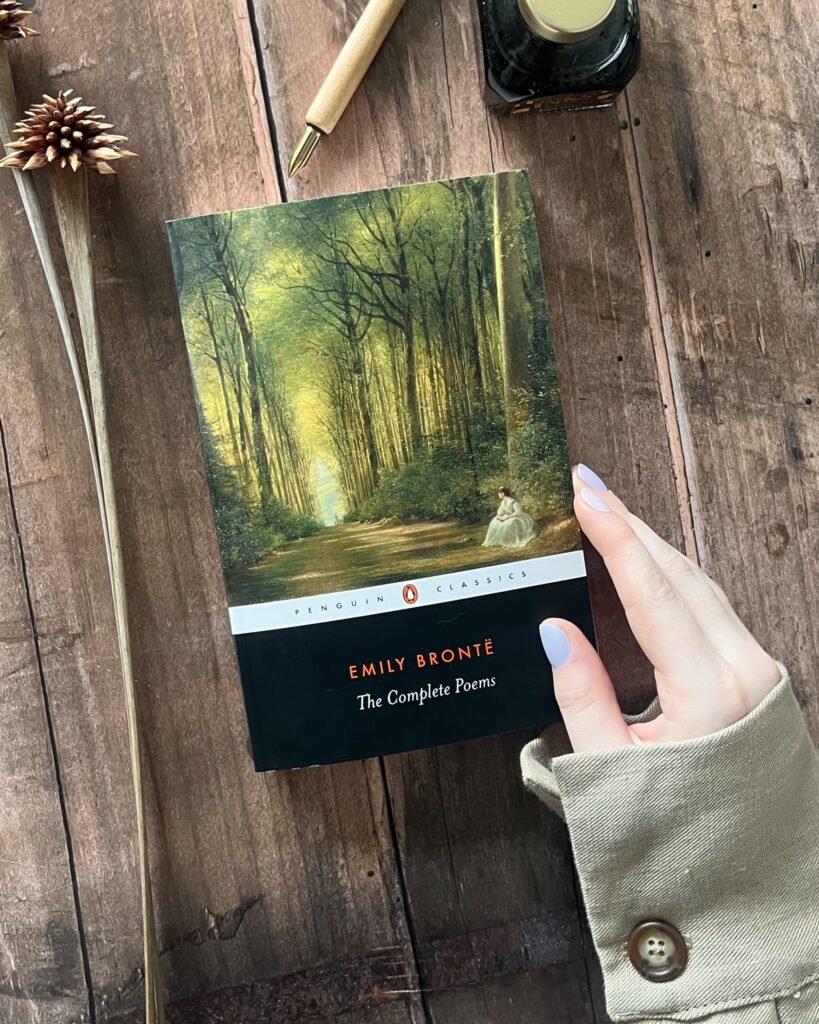
The Brontë sisters saved my life. It’s a long story, but it begins with Emily and Charlotte Mason:
“His contention, that in Emily Bronté we have an example of the immeasurable range of the soul, seems to me a just one: that a delicate girl, brought up almost in isolation in a remote parsonage, should be able to sound the depths of human passion, conceive of human tragedy, and gather the fruits of human wisdom, is a very fair illustration of the majesty of the soul” (Ourselves, p. xlii)
It’s why I’ll defend Wuthering Heights as a great novel, her poetry among the best, and agree with Charlotte that each of us possesses an immensity of soul—and, that this recognition is a step toward redemption.
What are your thoughts on Emily Brontë?
@rbaburina
January 18, 2024
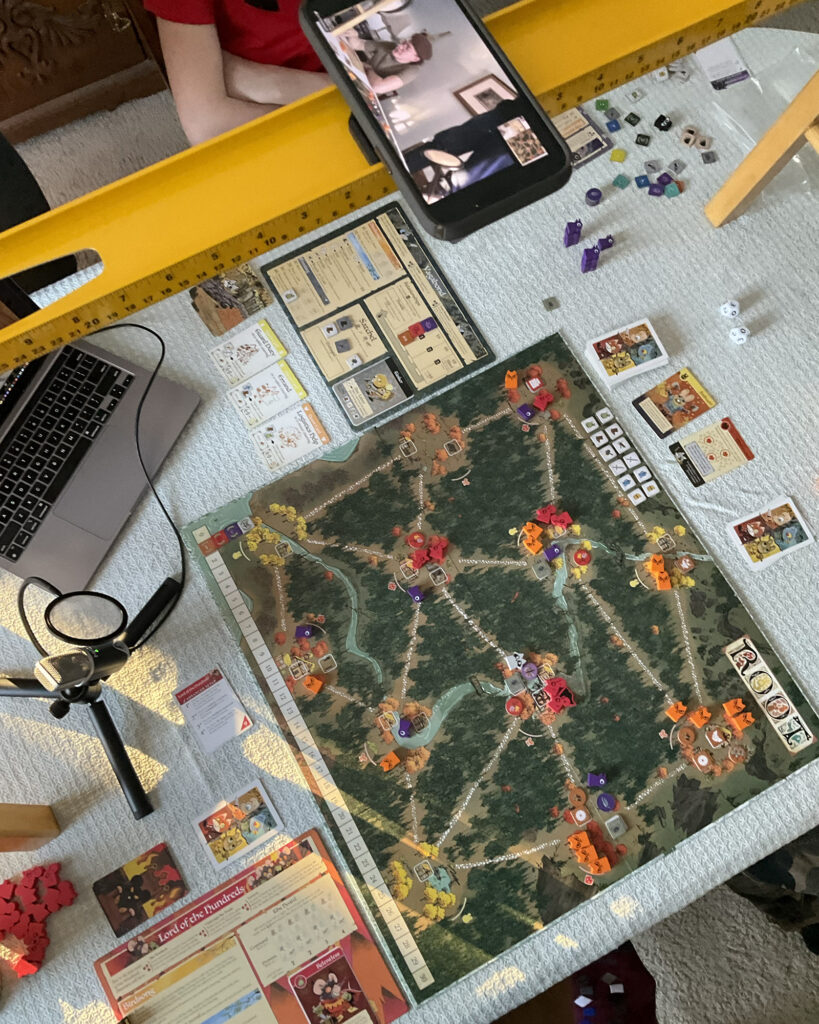
About a year ago, my teenage son discovered a fascinating board game called Root. This “game of woodland might and right,” recommended by the publisher for ages 14+, first interested my son because it reminded him of the Redwall novels by Brian Jacques. The game, published in 2018, is a pioneer of the “asymmetric” model, where each player has markedly different goals and scores points in widely different ways.
Over the Christmas holiday, I enjoyed many hours of play with my two sons and my new son-in-law. The elegance of the game along with the range of strategic options engaged me in an unusual way. The customary sadness of holiday-end good-byes as family members returned to school and home was compounded by the sense that I was leaving these game sessions behind.
Board games remind us that we are embodied beings, or as Dom Gregory Dix puts it, “ensouled bodies.” We move counters, roll dice, pass cards, and contemplate moves all without the aid of screen or computer. We are face-to-face, eye-to-eye, as conversation flows freely between the game setting and our real lives.
Last weekend we tried to bridge the physical and virtual, and with an elaborate set of microphones and cameras, we brought our distant son-in-law into the dining room with us as we played an encore game of Root. My wife provided the hands for Andrew so his intentions could be fulfilled physically on the board in plain view of the other players. We all forgot the presence of the Zoom screen as voices filled the room and our conversation again glided effortlessly from game goals to life goals and back again.
No, it was not the same as when we could all smell the pine of the tree in the next room and share the same bottle of sparkling apple cider. But we were family again, and devices combined with voices, counters, hands, and eyes to allow ensouled bodies to fellowship mind-to-mind.
@artmiddlekauff
January 19, 2024
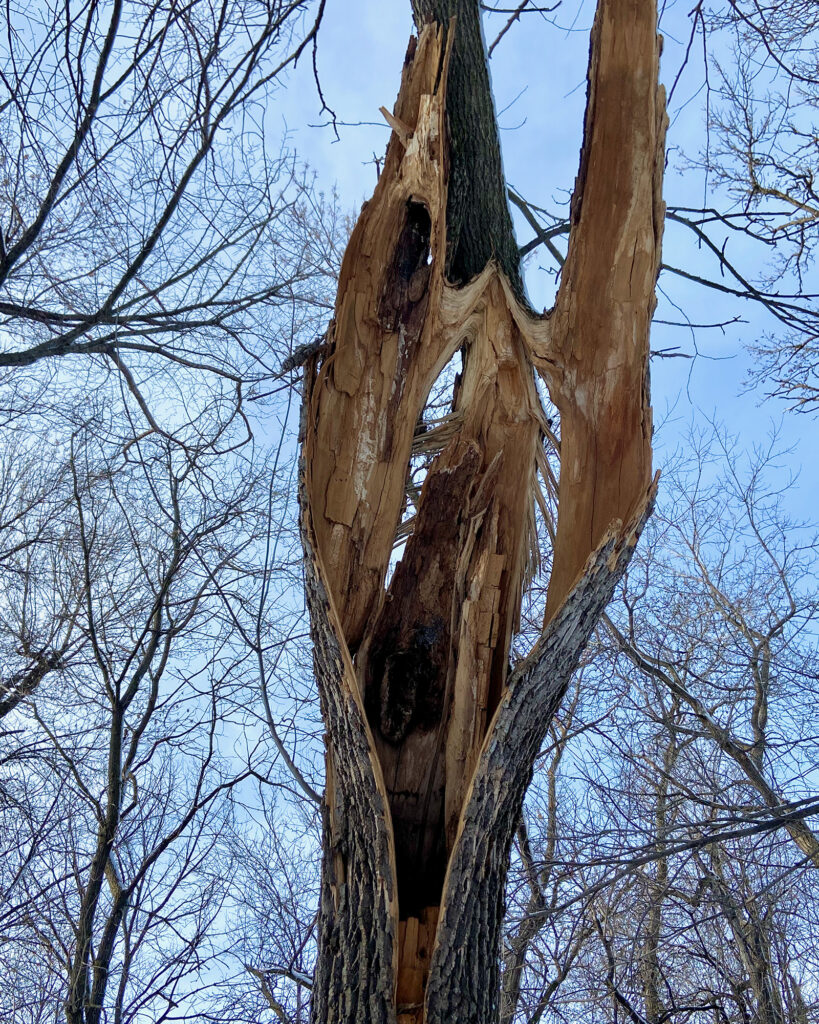
In our forest, we came upon this very interesting, very large, tree. At some point, the inside of the tree must have fallen right out of its wrapping, leaving the outer bark split, though still standing! We wondered if maybe the tree had been struck by lightning or something else like that.
Isn’t it so fascinating to look at? The forest is a world of never-ending wonder!
@antonella.f.greco
January 20, 2024
Join me this summer at two special gatherings with Simply Charlotte Mason!
The first is a hands-on weekend to give those of you starting out experience and confidence in using the Charlotte Mason method. It includes a morning of immersion studies where you’ll play the role of a student, guidance in teaching each subject, and you’ll even leave with a personalized plan for your upcoming homeschool year!
The second encourages and equips you to spread the CM feast with a focus on subjects like art, poetry, Plutarch, & more.
Click on the images above for all the details!
@rbaburina
January 21, 2024
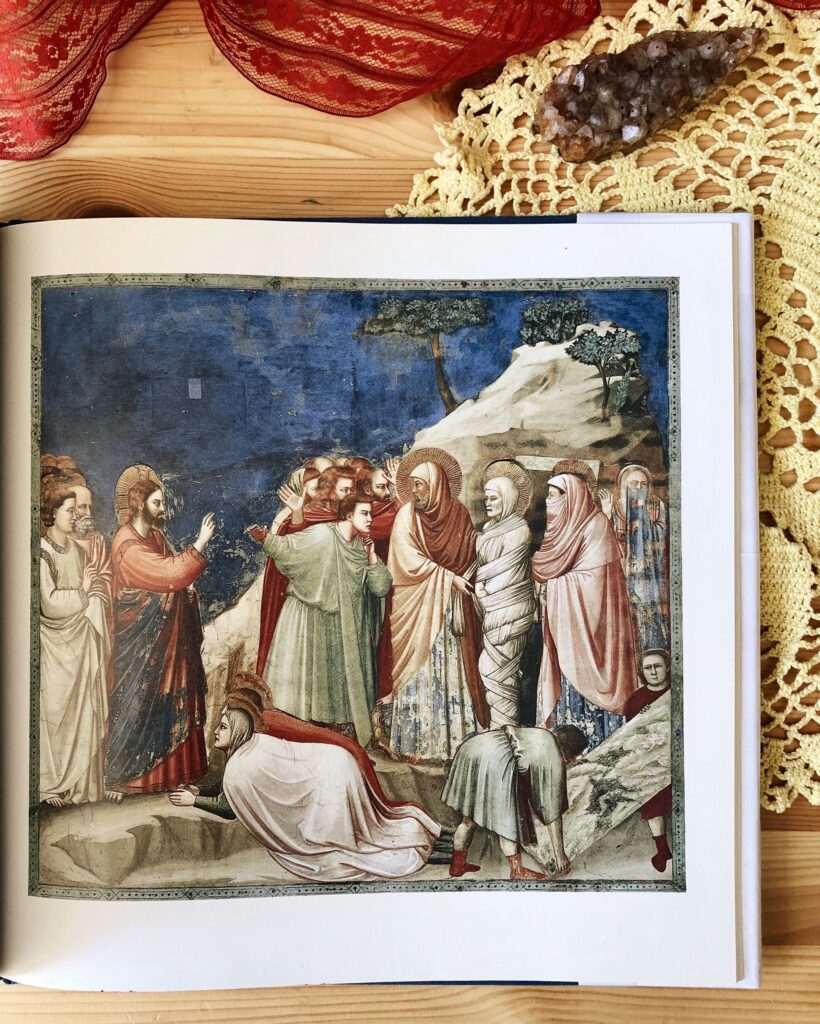
Samuel M. Ngewa describes what happened when Jesus finally reached Bethany:
On his arrival, Jesus was met by Martha, whose first words were, Lord, if you had been here, my brother would not have died. These were exactly the same words spoken by Mary later. The statement probably echoes words the sisters had said to each other again and again, first as they waited for Jesus to come and then as they mourned their brother’s death.
Martha’s faith had not been shaken, for she also said, I know that even now God will give you whatever you ask. The ‘whatever’ in her statement does not seem to have included the resurrection of Lazarus. She was likely thinking in terms of everyday life, not of a movement from death to life.
Late one night over the Christmas holidays a few of us were still up chatting in the living room. My daughter asked a provocative question: “Do you ever pray for something that only God could do?”
I’ve thought about that question a lot in the weeks since. I pray for a lot of things, but these are all things that are possible, even likely. But do I pray for things that are impossible? It seems that Martha wasn’t ready to do so. Am I?
Join Charlotte Mason’s contemplation of faith as she reflects on Martha’s words. Find her poem here.
@artmiddlekauff
